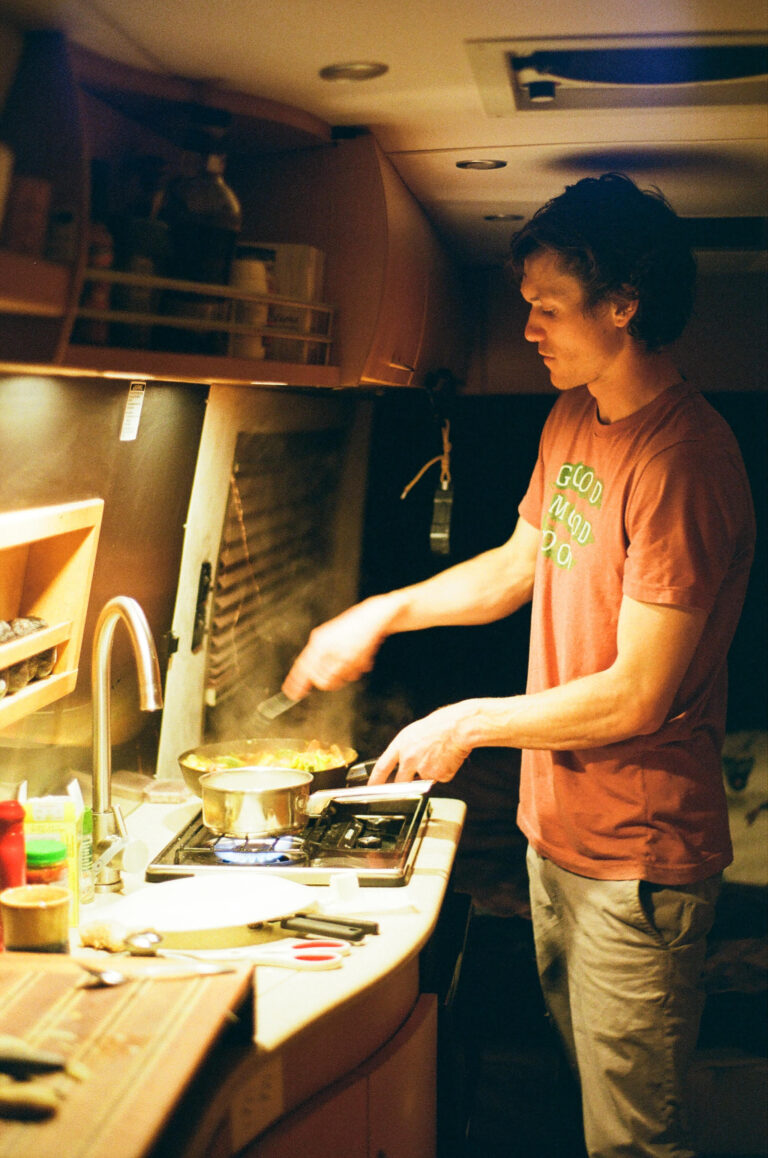
Looking to do some upgrades around your RV? Curious to explore different alternatives for your RV stove? Whatever is the situation that brought you, we know you are here to learn and we are here to give you all the information we have so let’s jump right in!
1. RV Propane Stoves
Propane RV stoves have been around for a long time, and they offer many benefits including:
- No chopping, stacking, or moving wood
- No lighting and tending a fire
- No clean up of a sooty mess
- No “fireplace” smell in your RV
- No need for electricity
Before you run out and buy a propane RV stove, consider a few of the negatives:
- Propane is not sold everywhere. If you rely on it for cooking you need to make sure you don’t run out
- Propane is flammable, and can be dangerous if not treated properly.
2. Electric RV Stoves
If you don’t want to spend money on propane, an electric RV stove, is perfect for you. When your RV is parked and hooked up to electricity, you can use electric cookware to save some cash. Particularly if you are at a campground where the nightly fee includes the cost of electricity. As a bonus, electric stoves come in a variety of color options, and can be a stylish and chic addition to your RV. Choose from a traditional electric cook top, or an induction cook top.
3. RV Wood Stoves
Most RV’s are fitted with propane or electric cook tops. But…if you are looking for an alternative way to cook, you may want to consider putting a wood stove in RV.
Wood heat is a sustainable and affordable way to cook your meals. Of course, there are safety considerations that you must take into account when considering this option. Improper installation and operation of a RV wood stove can lead to carbon monoxide poisoning and possible fire.
If the proper precautions are taken, having a wood stove in your RV is no more dangerous than having one in your physical home. The precautions are as follows:
- It is essential that you have a direct air option that is piped to an outside air source.
- Before buying an RV wood stove, check the manufacturers’ recommended clearances to see if it is a viable option for your space
- Buy a carbon monoxide alarm for your RV and check the batteries. Also, test the alarm periodically to make sure it’s in perfect working order.
- If you are always on the move with your RV, do a pre-burn inspection once you’ve arrived at each new location. Inspect the pipe fitting to make sure that you have an airtight and secure connection.
4. Diesel RV Stoves
Diesel RV Stoves look like an appliance that you would find in more expensive homes. Not only are these RV stoves easy to clean, but there is also no open flame, making its dramatically safer than a propane stove. Other benefits include:
- The stove heats up quickly and is relatively easy to use
- Diesel stove tops don’t use much fuel, and the exhaust is vented to the outside of of the camper
- Clean burning so there will be no marks from the diesel exhaust on the side of the camper
- Diesel provides independence because it is easy to find and it is the perfect option if you are looking for a one fuel approach for your RV (if you have a diesel RV of course).
Important Considerations When Cooking On the Road
A stove isn’t simply a place to cook your meals, it is also an area to provide nutritious and wholesome meals for you and your loved ones. No matter what type of RV stove you choose, there are a few considerations that will make this task easier:
- Stock your galleys carefully so nothing breaks or falls out.
- Keep a mixture of canned, powdered, instant, and frozen meals in your pantry.
- Plan meals in advance.
- If your family will be camping for several days, consider bringing along a crock pot or pressure cooker.
- Purchase an under the cabinet coffee pot. You can use it to heat water for hot drinks, oatmeal, ice tea, instant mashed potatoes, soups, and other foods that may need it.
The Bottom Line
When it comes to choosing the right type of RV stove for your travels, it all comes down to personal preference. There are many options out there, be sure to choose the best one for your needs.
For more information on RV stoves check out our blog “How to Choose the Best RV Oven or RV Stove Oven”.
What do you think? What type of RV stove do you prefer? Let us know in the comments below.
*This post contains affiliate links. RVshare may receive compensation if you make a purchase after clicking on a product link.

